The moon at sunrise
The Story Continues
So far, I have revealed only bits of information about how I fell for this word, camino, because it is just that… bits. But I accepted and folded what I found into my consciousness and here I am on a pilgrimage. Although I am not deeply religious, I know that I am a spiritual and thoughtful observer of life on earth.
I am aware of and note many contradictions and coincidences that affect my life. Some things are amusing; many are not. It is hard not to see anything that is right in front of my eyes. I am not here to proselytize or convince anyone of my views on anything or to conveniently feign a dis-ability to see or hear. It has taken a lifetime to learn to love myself. And you know what? That takes a lot of work just convincing me!
I’m trying to change my response to what I cannot control. My desire is to grow stronger on the inside, so that nothing on the outside affects my inner peace and wellness unless I allow it.
Maybe that is the reason I am here on a 1400 kilometer path bearing the heat, the rain, the loneliness, the pain, and all the other feelings and sensations that I cannot ignore.
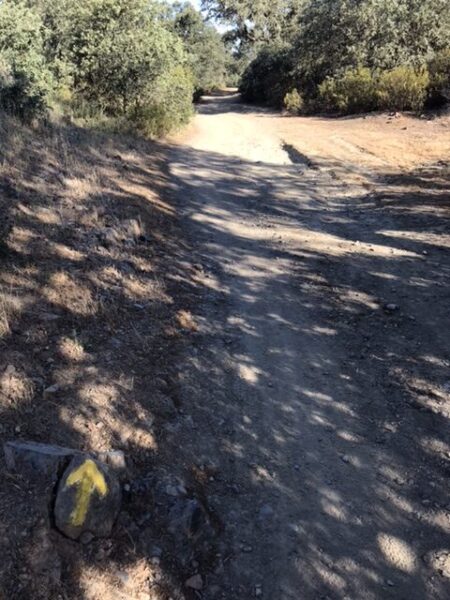
It takes but one positive thought when given a chance to survive and thrive to overpower an entire army of negative thoughts. – Robert H Schuller
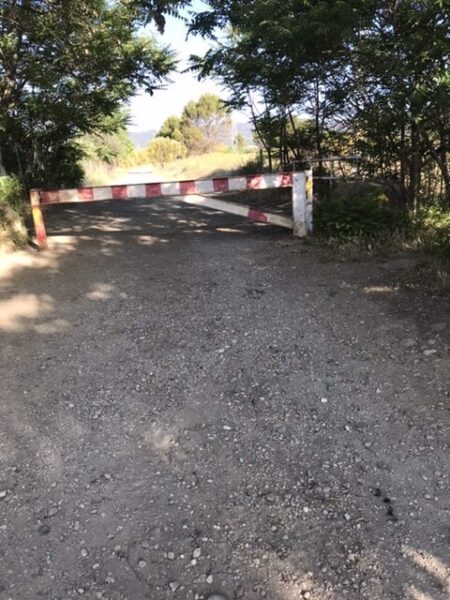
The thought hit me so solidly, clearly, and tenaciously. It will not let me go. The camino, the walk, the way called me.
All truly great thoughts are conceived by walking. – Friedrich Nietzsche
On the practical side
Camino Mozarabe is a long trek across Spain. The established stages or distances between towns are long too. Albergues for pilgrims can be scarce in some of them. The beds fill up fast and slow walkers like me can be left out in the cold heat. I have had a few scary moments on the trail.
Alternate lodging such as private albergues, hostels, or hotels at various price points may be available. At most of these places, I have my own room.
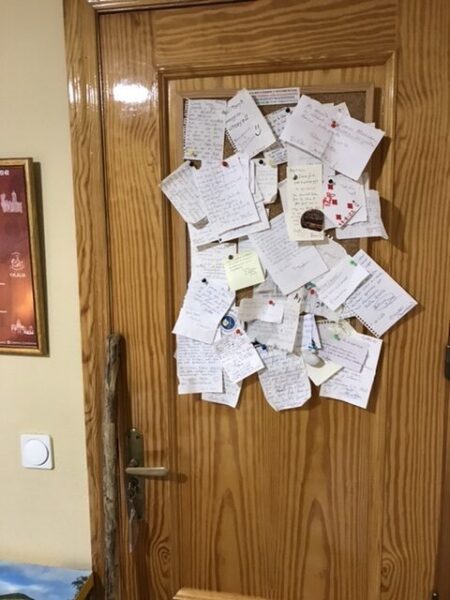
A few of the private albergues – a private home, lodging at a horse training center, an artist’s home – on and off the trail. Getting to them requires more effort and kilometers walking to find them.
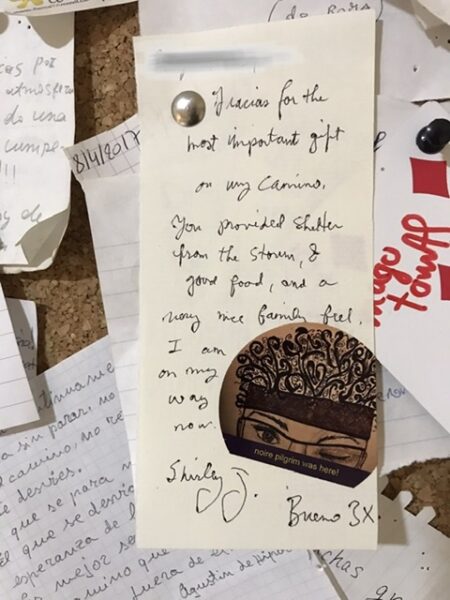
Many hosts go out of their way to provide relief and comfort to pilgrims when they need it. Some sympathetic hosts may offer a return ride to the camino trail.
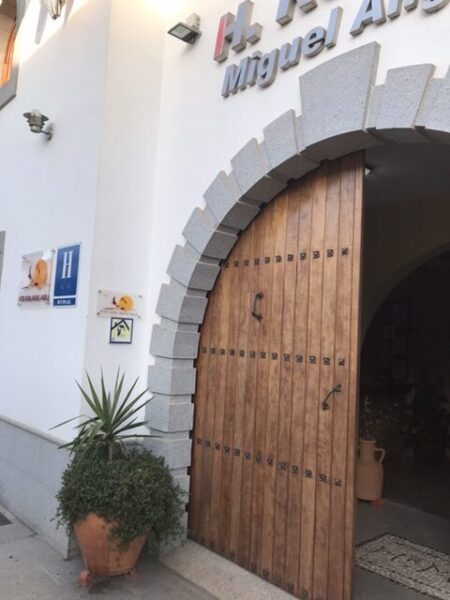
And I appreciate that.
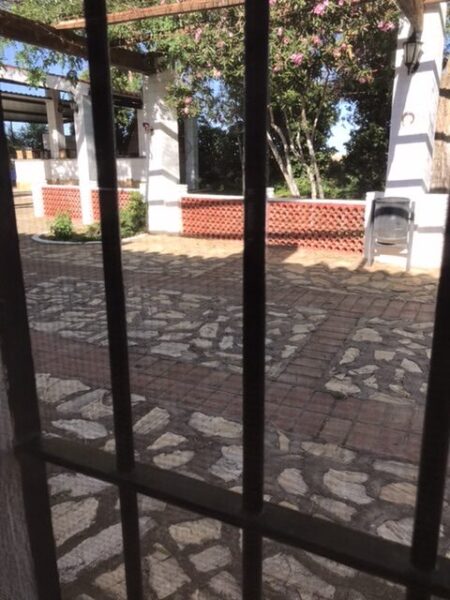
This is olive country
Spain has the best olives in the world behind Italy. The camino path snakes endlessly through olive groves. The smell of olives being processed is pervasive. The trees are all shapes. The land in which they are planted is rocky and barren. It looks like nothing should grow in it but olives do.
Practically every meal features or has olives. I like them and have eaten a fair amount. I carry them in my backpack for a quick snack on the road. They provide the salt that I need and sweat out for the long walk.
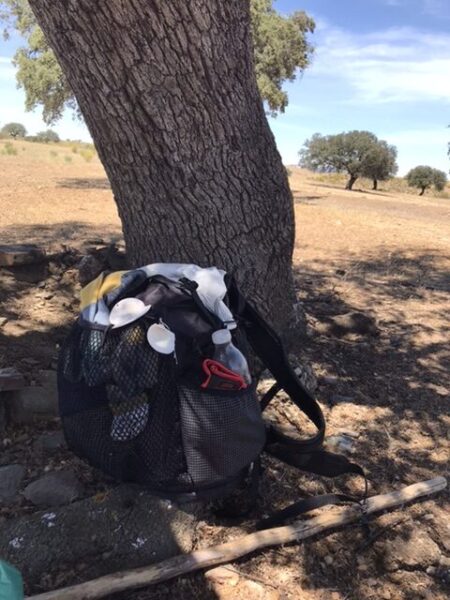
Sometimes I have to walk a long distance – long after I need to – in order to sit down and rest. I keep my eyes open for a nice, shady spot under a tree with a stone for sitting. My preference is a solid rock. I avoid sitting on old wood or stumps because big ants crawl out of the “woodwork”. Those creatures love new prey (me). Not surprisingly, they love my uncovered feet when I am airing them out.
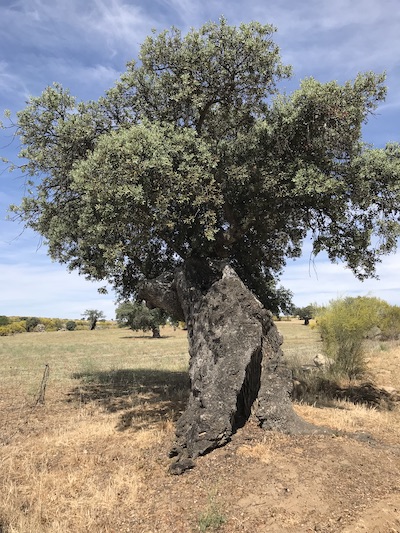
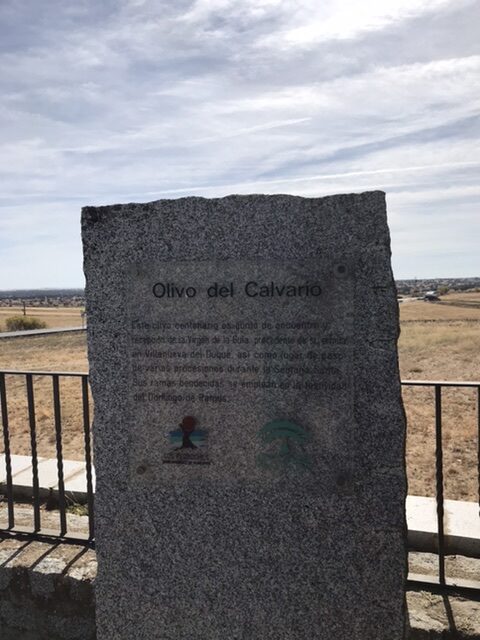
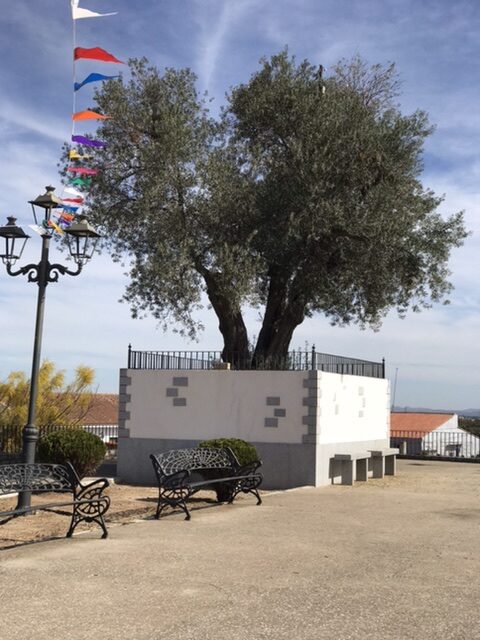
The spot occupying the El Calvario olive tree is the meeting and reception point of the image of Virgen de la Guía. It is taken from the chapel in Villanueva del Duque and passed by various processions during Holy Week. Its blessed branches are used on Palm Sunday.
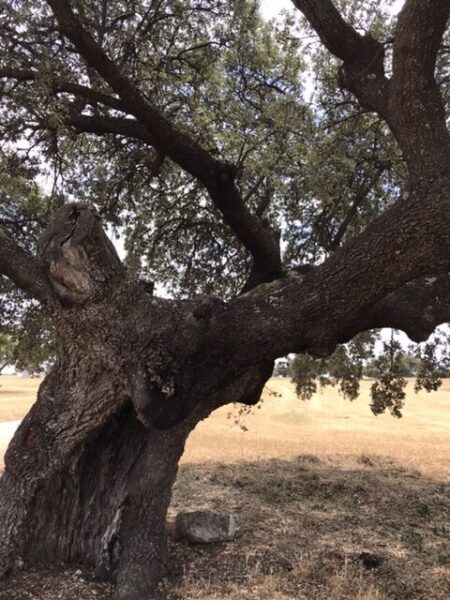
A Cross for Those That Need One
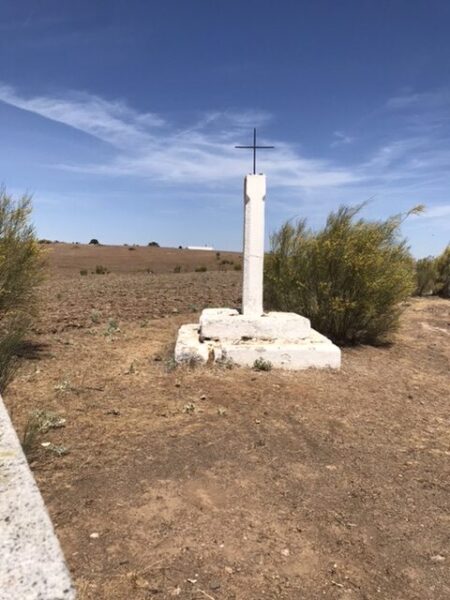
The crosses on the path serve as a reminder of the religious and spiritual purpose of the camino. Nature and wilderness evoke the feeling of connection for me. For more than a thousand years, millions of pilgrims walked these same paths through Spain on the way to Santiago de Compostela. There were and are many reasons why people – pilgrims – risked their lives to follow the paths to the tomb of Saint James.
Another somber purpose exists for the crosses. They document the end of life. The difficulty of the paths were and are too much for some. Pilgrims have died attempting to make it to Santiago. Causes are not strictly the camino itself but health issues, dehydration, exposure, road accidents and maybe even fright which resulted in fatal consequences on the trail.
Remembrances for some of these unfortunate pilgrims are left in the forests, on crossroads, in fields, and some unexpected places on the camino paths.
My walking stick
My walking stick has been a consistent and steady companion on the path.
I found it on the ground outside of Almeria. So it has Andalucian roots (pun intended). Interestingly, old men in the villages admire it and admit that they want to steal it from me.
The stick is useful for checking water depths before crossing and steadying my ascent and descent on inclines on the mountains. I lean on it when I stop walking and stand for a few seconds looking for yellow arrows on the path.
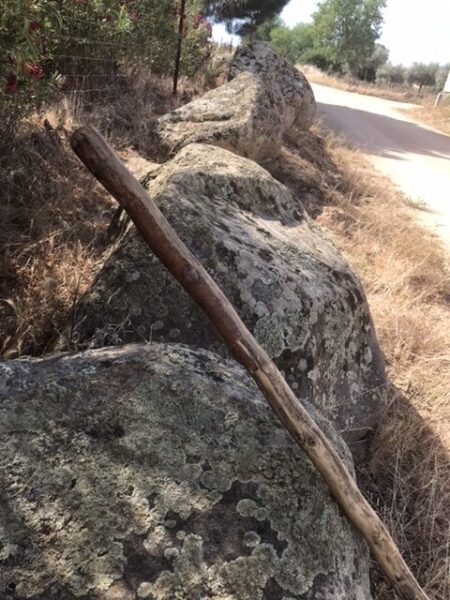
And as I do with my feet on cowpaths and some cities, I am careful where it “steps”.
The municipal albergue
The bunk room was full this night. All bunks were filled with walkers, bicyclists and their bikes. We had one bathroom and shower to share (not at the same time of course) and complete our ablutions. That is right – one bathroom.
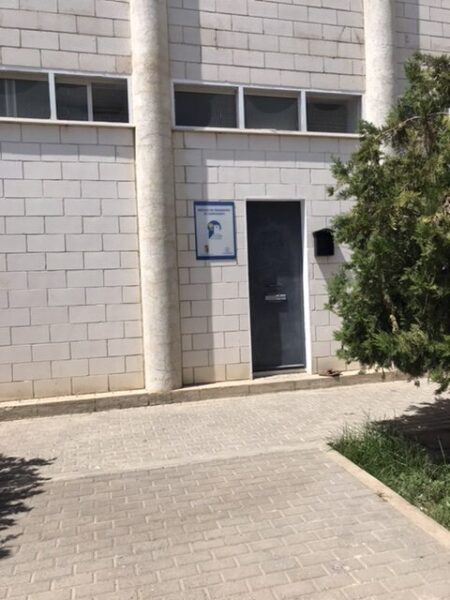
Safe shelters like these are provided by some towns and it is appreciated. Still they are located in centers of community activity. We could hear a basketball game during the night. Soon however, the place quiets down and we can sleep.
Believe it or not, the arrangement works in the evening. During the amusing morning dance to leave the place most of us – not all – understand the need for cooperation.
Are You Going to Eat That?
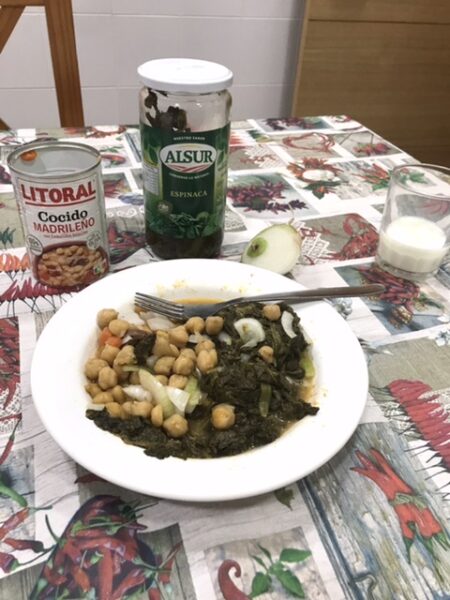
Again, finding something to eat can be difficult without a little planning. The Mozarabe is a long hot camino that requires plenty of water and food. That is, food that must be carried along with the backpack and other essential items for the trek.
Occasionally, towns do not have services including grocery stores, cafes, or restaurants which means that ingredients must be purchased and carried along the way – when and wherever you can – to make your own meals.
The other issue is that the timing of Spanish siestas or afternoon closures of many businesses including cafes conflicts with the needs of pilgrims on the trail.
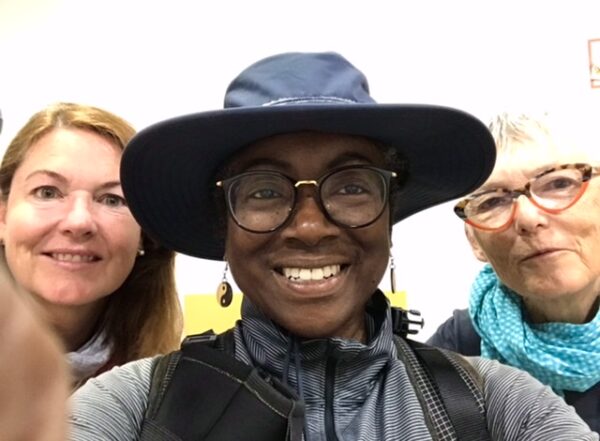
These ladies were experienced camino walkers… and fast, too. They had completed a number of caminos in the past.
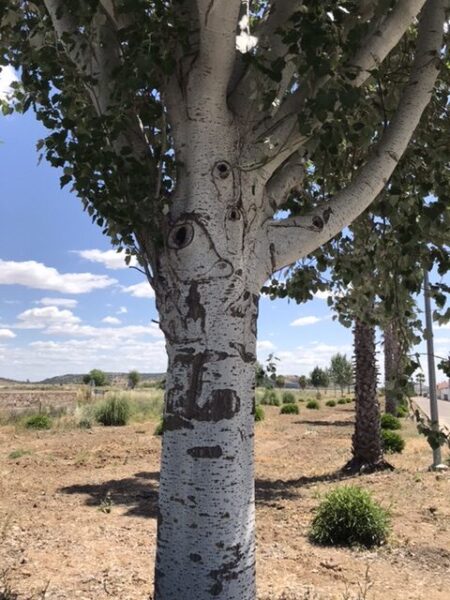
There are orchards and trees along the way that stand tall. Most do not provide a lot of shade or shelter except – and this is another example of Murphy’s Law – those that are behind fences and other restricted areas.
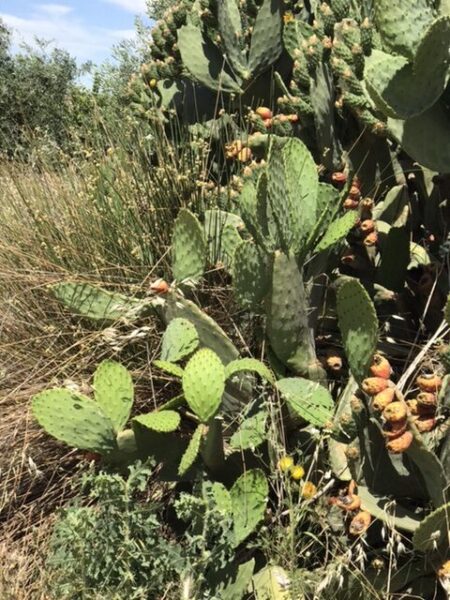
Prickly fruit are ripe for the picking if you dare. Usually, I don’t sample any fruit from trees or bushes. I picked up some cherries that dropped from a tree in a small town that was full of them. They were delicious!
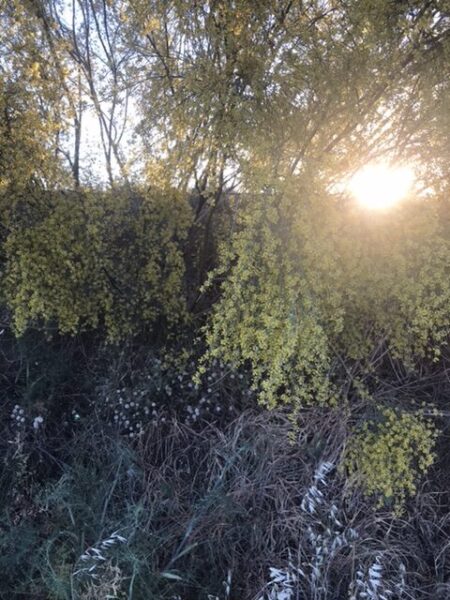
A sunrise signals another day of walking. There is not one thing that is predictable or certain except that.
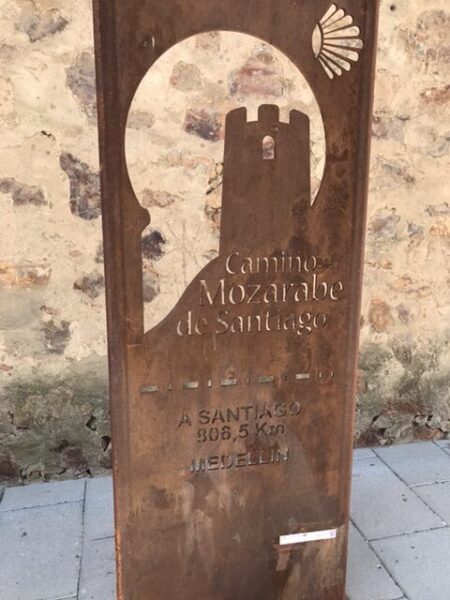
Markers and arrows are encouraging or a letdown. A lot depends on how I feel. If a long stage seems to be an endless path of sharp rocks, a marker like this one is something I definitely do not want to see. It reminds me that I have a long way to go still.
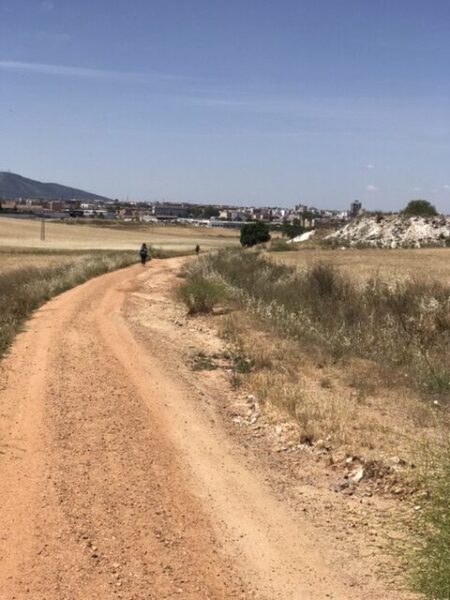
But I have come a long way too.
___
Baadaye and Buen camino
Shirley J ❤️
_________
Song of the day:
Angel by Aretha Franklin
This and several posts this summer will chronicle my pilgrimage in Spain where I will walk the 1400 kilometer-long camino Mozárabe. Read my announcement here.

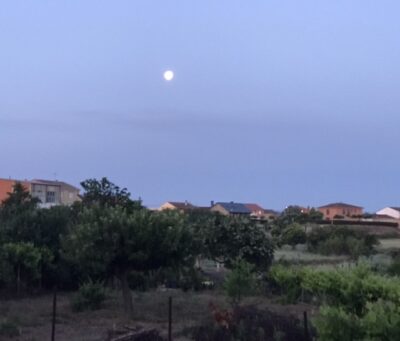
2 thoughts on “👣 Noire Pilgrim: All I Want”
Excellent story of what it was like on your day to day journey.
Thanks. Stay cool!
Comments are closed.